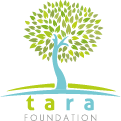With an average literacy rate of 23% (7+ years), below the national average of 32.4%, educational programs are essential to the social development of Bashati. Given prevalent discrimination against women in Bangladesh, and our belief that education is a right, we focus on female education at the primary level. Our programs aim to provide quality education in an effective manner, in a child-friendly and inclusive environment. In doing so, our hope is to empower women from an early age, eradicate gender inequality and prevent such discrimination from being passed on to future generations. Our program will encompass:
- Early childhood development
- Scholarship programs
- Building educational institutions and libraries
- Initiating programs in literature, arts and science.
- Supply educational materials free of cost
Early Childhood Development
We believe in addition to formal academic education, a child’s cognitive, emotional, and social development is crucial to their long-term success. As such, our focus will be primarily on Early Childhood Development (ECD). Although children in Bangladesh have the advantage of being cared for by several family members, UNICEF has recognized important gaps in what families know and understand about childcare. As such, we will be using UNICEF’s 12 guiding principles as a starting off point for our ECD program, which are as follows:
- The objective of early childhood intervention is to establish a foundation for life-long learning.
- Children's two basic developmental needs are, on the one hand, love and acceptance, and on the other, exploration, activity and expression as independent beings.
- Every child should have the opportunity for participation in family and other social environments like pre-school, day care centres, etc.
- Areas of development are intertwined, as they make up the whole child.
- Through play, children practice skills they have acquired and learn new ones.
- Providing a stimulating environment is the key to learning and development.
- Interest, praise and encouragement from adults is very important to children.
- For young children, it is the process of creating that is important, not the product. In other words, process is more important than product.
- The basic needs of child development go beyond protection, food, and healthcare and include the need for affection, interaction, stimulation, security, and play, allowing for exploration and discovery.
- Every child is unique. Two children of the same age are not exactly alike, and every child has an individual learning style.
- It is essential to create equal opportunities for both girl and boy children for their maximum development.
- Cultural appropriateness is a major criterion for a successful child development programme.
